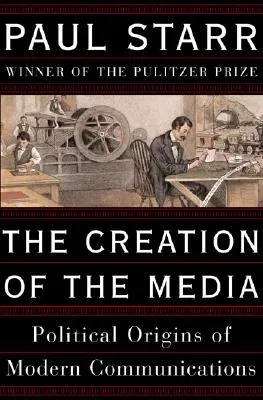America's leading role in today's information revolution may seem simply
to reflect its position as the world's dominant economy and most
powerful state. But by the early nineteenth century, when the United
States was neither a world power nor a primary center of scientific
discovery, it was already a leader in communications-in postal service
and newspaper publishing, then in development of the telegraph and
telephone networks, later in the whole repertoire of mass
communications. In this wide-ranging social history of American media,
from the first printing press to the early days of radio, Paul Starr
shows that the creation of modern communications was as much the result
of political choices as of technological invention. His original
historical analysis reveals how the decisions that led to a state-run
post office and private monopolies on the telegraph and telephone
systems affected a developing society. He illuminates contemporary
controversies over freedom of information by exploring such crucial
formative issues as freedom of the press, intellectual property,
privacy, public access to information, and the shaping of specific
technologies and institutions. America's critical choices in these
areas, Starr argues, affect the long-run path of development in a
society and have had wide social, economic, and even military
ramifications. The Creation of the Media not only tells the history of
the media in a new way; it puts America and its global influence into a
new perspective.

